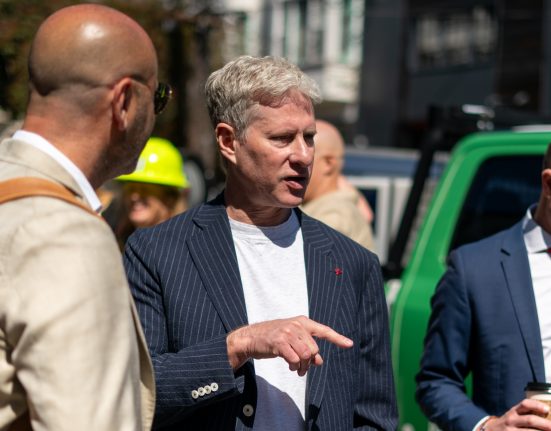The ongoing saga over funding cuts at Dallas Area Rapid Transit is at a turning point as local leaders and transportation officials regroup in the aftermath of a lengthy legislative fight.
House Bill 3187, which would have cut funding for DART by 25%, failed to pass a state committee deadline in May. The bill’s author, state Rep. Matt Shaheen (R-Plano), did not respond to KERA’s requests for comment. An identical bill in the Senate never made it out of committee.
Michael Morris, director for the Regional Transportation Council, said transit agencies including DART and member cities should be “equally dissatisfied” with the impact of HB3187, even if it failed to pass.
“Over the last 12 months we witnessed a full blaze, horrible tone, horrible conversations especially if you look at the history of our region on transportation over the last four decades,” Morris said. “I’ve never witnessed anything like this.”
House Bill 3187 didn’t get a second hearing before last week’s deadline. But an identical version in the Senate could still advance in the few weeks remaining in the regular session.
Morris helped facilitate mediation between DART and member cities earlier this year as a last-ditch effort to keep legislation from being filed in Austin. Not much came of those talks once HB3187 got a hearing in the House Transportation committee.
Morris said since the legislation failed, he hasn’t heard from DART or the cities.
“I don’t know if people are afraid to call me because we have such an active role,” Morris said, “but my thinking is, everyone is frustrated.”
He added for now, near-term plans for the FIFA World Cup in 2026, which will require inter-city collaboration and DART resources, will go forward smoothly.
Plano’s disappointment
Leaders at member cities like Carrollton, Irving and Plano have said that they’re paying too much into DART and getting too little in return.
Mark Israelson, city manager for Plano, said his city is disappointed Shaheen’s effort to “reform” DART stalled in the legislature.
“Our bottom line is accountability to our residents/taxpayers,” Israelson told KERA in a written statement. “Plano pays over $100 million to DART annually. We want to justify to our residents how those funds are being used.”
The city also isn’t ruling out pulling out of the agency, a drastic action that would require a city-wide vote.
“Plano City Council members will consider all options in the coming months,” Israelson said.
He added he’s hopeful that DART will address the financial inequities that were highlighted in a 2023 report by Ernst & Young.
In March the DART board approved a resolution to direct 5% of its tax collections into a General Mobility Program for eligible cities to use for transportation projects, though it will come at the cost of service reductions. Over the coming months, DART plans to hold public meetings over potential service changes that include cuts to bus routes and service reductions for GoLink and the TRE.
‘The future of our transit agency’
Randall Bryant, who represents Dallas on the DART board, said those changes will all depend on public input.
“It will all come down to budgetary,” he said. “There could be a potential world where none of those routes get cut or services get cut.”
He added he’s hopeful soon-to-come revised E&Y study will help show the true value of transit in all of DART’s member cities, and that the Regional Transportation Council’s recently completed Transit 2.0 study will shed light on where the region needs to go moving forward.
“I think that personally I am looking forward to all of our member cities to come to the table and work with DART on what we envision the future of our transit agency to look like and that will take all of our member cities to do so,” Bryant said.
Regional transportation director Michael Morris said he plans to propose a process at the upcoming RTC meeting on June 12 that can hopefully lead to some action in the next legislative session “for the purpose of developing consensus.”
“I’ll ask for approval in July and request the regional transportation council to take a leadership position… from legislators to upset cities to transit authorities to RTC members and then prepare legislation for the 90th so we can get our region back together in a collegial fashion moving forward,” Morris said.
Pablo Arauz Peña is KERA’s growth and infrastructure reporter. Got a tip? Email Pablo at parauzpena@kera.org.
KERA News is made possible through the generosity of our members. If you find this reporting valuable, consider making a tax-deductible gift today. Thank you.







